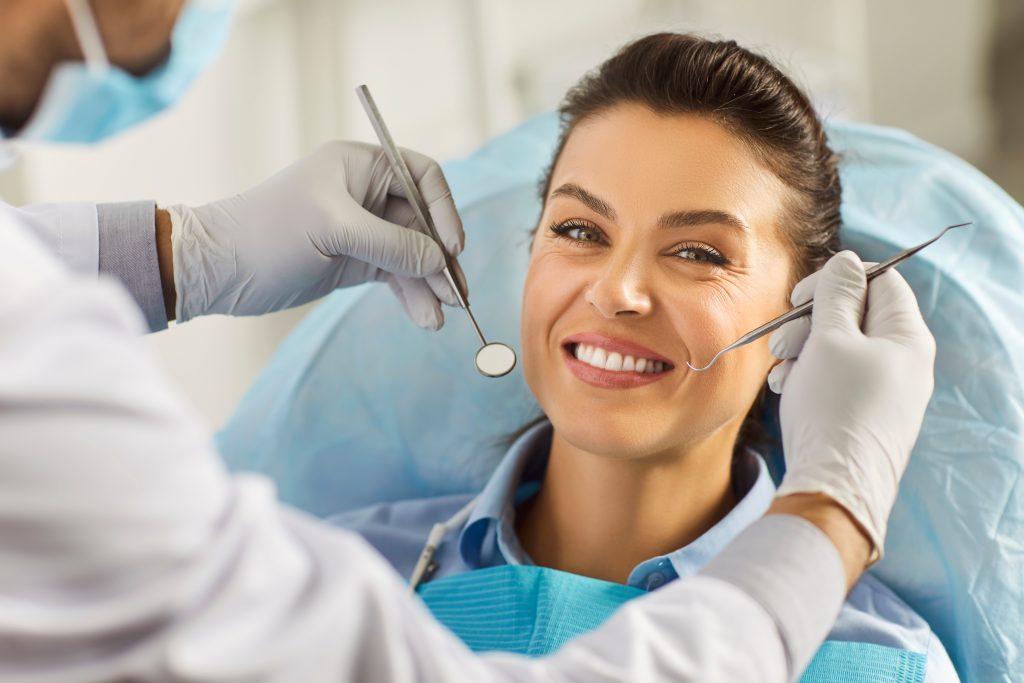Get That Holiday Sparkle: Why You Need a Dental Cleaning Before the Festivities Begin

Professional Cleaning | Dentist Near Me in Rapid City The holiday season is approaching fast, and your calendar is filling up with family gatherings and festive celebrations. But before you dive into holiday activities, there's one important appointment you shouldn't overlook: visiting a dentist near me for a thorough cleaning. Your smile will be […]
Chewing Ice: The Cool Habit that Can Harm Your Teeth | Rapid City Dental Clinic

Rapid City Dental Clinic Welcome to Rushmore Dental, your trusted Rapid City dental clinic. We're here to shed light on a topic that might seem innocent but can have detrimental effects on your dental health – chewing ice. While it may seem refreshing and harmless, this cool habit can lead to various dental issues. This […]
9 Oral Health Tips from Your Dentist in Rapid City

Rushmore Dental | Dentist in Rapid City, SD Daily brushing and flossing are necessary to maintain healthy teeth and gums. However, you can do other things that benefit your overall well-being. Please read below for your dentist in Rapid City's nine dental health tips. #1 BRUSH YOUR TEETH TWICE DAILY Brushing your teeth with […]
It’s Time for a Dentist FAQ Session

DO YOU HAVE questions for the dentist? There’s a good chance one of yours made our frequently asked questions list! Question 1: How often do I need to visit the dentist? For most people, we recommend a dental exam and cleaning twice a year. Even for patients with perfect oral hygiene, it’s inevitable that some […]
Women’s Dental Health

WOMEN FACE A different set of challenges than men do in caring for their teeth and gums, and they also have different advantages. Oral Health Issues that Affect Women More Women make up 90% of temporomandibular joint disorder (TMD) diagnoses. TMD can be caused by bruxism, joint structure, stress, arthritis, vitamin deficiency, or hormones. Another […]
Soothing a Sensitive Tooth

IF EVERY BITE of ice cream or every sip of coffee gives your teeth a nasty jolt, then you know what it’s like to live with tooth sensitivity. At least one in every eight Americans (including kids) has sensitive teeth. Why does this happen to so many of us and what can we do about […]
Kissing and Contagious Cavities

THE REASON DAILY brushing and flossing are so important for keeping harmful oral bacteria populations under control is that they reproduce very quickly. In a healthy, clean mouth, there might be anywhere from a thousand to a hundred thousand bacteria on each tooth surface, but that can quickly become as many as a hundred million […]
Being Lip-Tied or Tongue-Tied

IT’S COMMON ENOUGH to be tongue-tied in the sense of not being able to get your words out, but a tongue tie is also a real medical condition, as is a lip tie. These conditions are both caused by pieces of tissue in the mouth called frena. One frenum connects the tongue to the floor […]
Dental Health Eating Disorders

EATING DISORDERS ARE incredibly dangerous, sometimes life-threatening mental conditions. The first health impacts that probably come to mind are the psychological toll they take and the malnutrition they cause if left unchecked. However, they also take a toll on oral health. Our teeth and gums require a variety of nutrients, vitamins, and minerals to stay […]
7 Ways to Manage Your Dental Anxiety from Your Dentist in Rapid City

7 Tips From Your Dentist in Rapid City At Rushmore Dental, we aim to help our patients feel relaxed in our care. But with many people suffering from dental fear or anxiety, we have our work cut out for ourselves. Please understand that you are not alone. We are dedicated to changing the old perception […]
